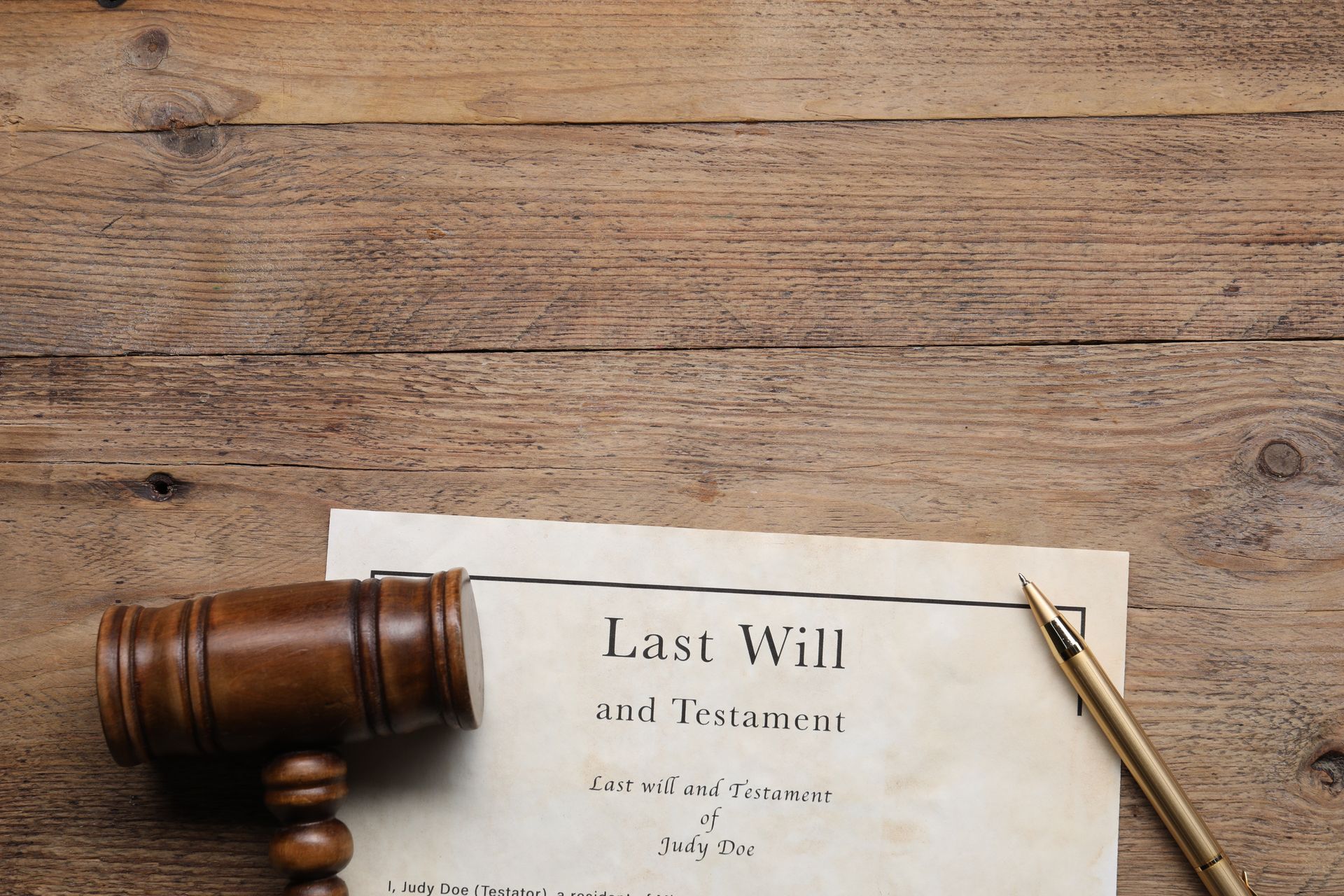
As a parent, your primary concern is the well-being and future of your children. You work hard to provide for them, nurture them, and ensure they grow up in a safe and loving environment. But have you considered what would happen to them if you were no longer around? It’s a difficult thought, but planning for the unexpected is one of the most important responsibilities you have as a parent. This is where having a will becomes critical—especially when it comes to the guardianship of your children.
Most people think they can do it later, it can wait until tomorrow. But tomorrow could be too late.
Why You Need a Will If You Have Children
A will is a legal document that allows you to outline your wishes for how your assets should be distributed after your death. More importantly, if you have minor children, your will is one of the most common and easiest ways to legally designate who you want to take care of them in your absence. Without legal documentation, the court will make these decisions for you, and they may not align with your preferences or your children's best interests.
- Choosing a Guardian: The most crucial reason to have a will as a parent is to ensure that you can choose a guardian for your children. This is the person who will raise your children, providing them with love, care, and guidance if you’re no longer there. Without legal documentation, the court decides who becomes the guardian, including potentially going into foster care. The court’s decision might not reflect your values or wishes.
- Avoiding Family Disputes: Family dynamics can be complicated, and without a clear directive in your will, disputes can arise among family members over who should take care of your children. These conflicts can be stressful and emotionally draining for everyone involved, especially your children. A well-drafted document can prevent such disputes by clearly stating your wishes.
- Financial Security: A will also allows you to manage your children’s financial future. You can appoint a trustee to manage any assets you leave to your children until they are old enough to handle it themselves. This ensures that their inheritance is used wisely for their upbringing, education, and well-being.
Peace of Mind: Perhaps most importantly, having a will provides peace of mind. Knowing that your children will be taken care of by someone you trust, in a manner you approve of, can alleviate one of the biggest fears parents face.

What to Consider When Writing a Will
Writing a will is not just about choosing a guardian for your children—although that is a significant part of it. There are several other factors to consider to ensure that your will accurately reflects your wishes and protects your children’s future.

Selecting the Right Guardian:
- Values and Beliefs: Choose a guardian who shares your values, religious beliefs, and parenting style. This person should be someone who you believe will raise your children in a manner similar to how you would.
- Age and Health: Consider the age and health of the potential guardian. If they are older or have health issues, they may not be able to care for your children until adulthood.
- Location: Think about where the guardian lives. Moving to a new city or state might be disruptive to your children’s lives, especially if it means changing schools and leaving friends behind.
- Willingness: Always discuss your decision with the potential guardian before naming them in your will. Ensure they are willing and able to take on the responsibility.
Example:
Imagine you have two close friends—one lives nearby and has children of their own, while the other lives in another state and doesn’t have kids. While both are loving and responsible, the local friend might be a better choice to minimize disruption in your children's lives.

Appointing a Trustee:
- Financial Responsibility: The trustee you appoint will manage your children’s inheritance until they come of age. This person should be financially responsible, trustworthy, and capable of making sound financial decisions.
- Conflict of Interest: Be cautious if you’re considering appointing the same person as both guardian and trustee. While it’s common, it can sometimes lead to conflicts of interest. Consider having separate individuals for these roles to ensure checks and balances.
Example: You might choose your financially savvy sibling as the trustee, even though they live far away, while selecting a local family friend as the guardian. This way, the financial management and day-to-day caregiving roles are clearly defined and handled by individuals best suited to each task.

Creating a Letter of Wishes:
- Guidance for Guardians: Along with your will, consider writing a “letter of wishes.” This is not legally binding but provides additional guidance to the guardian on how you’d like your children to be raised, including their education, religious upbringing, and other personal values.
- Personal Messages: This letter can also include personal messages to your children, helping them feel connected to you even after your passing.
Example: You could specify in your letter that you’d like your children to attend a particular school, participate in certain extracurricular activities, or be raised with specific religious practices.

Reviewing and Updating Your Will:
- Life Changes: Your circumstances, relationships, and financial situation can change over time. Review your will regularly, especially after major life events like the birth of a child, divorce, or the death of someone named in your will.
- Legal Requirements: Ensure your will complies with your state’s legal requirements, as laws regarding wills and guardianship can vary state to state. Consulting with an attorney is advisable to ensure everything is in order.
Example: If you initially chose a sibling as the guardian, but their circumstances change (e.g., they move overseas or face health issues), you might need to select a different guardian and update your will accordingly.

Conclusion
As a parent, creating a will is one of the most critical steps you can take to protect your children’s future. It’s about more than just distributing your assets; it’s about ensuring your children are raised by someone you trust, in an environment that aligns with your values. By thoughtfully considering who you appoint as guardians and trustees, and regularly reviewing your will, you can have peace of mind knowing that your children will be cared for in the way you would want, no matter what the future holds.
Don’t delay—start the process of creating or updating your will today. It’s an essential act of love and responsibility that will safeguard your children’s future.
Contact Us
Check the background of your financial professional on FINRA's BrokerCheck.
The content is developed from sources believed to be providing accurate information. The information in this material is not intended as tax or legal advice. Please consult legal or tax professionals for specific information regarding your individual situation. Some of this material was developed and produced by FMG Suite to provide information on a topic that may be of interest. FMG Suite is not affiliated with the named representative, broker - dealer, state - or SEC - registered investment advisory firm. The opinions expressed and material provided are for general information, and should not be considered a solicitation for the purchase or sale of any security.
We take protecting your data and privacy very seriously. As of January 1, 2020 the California Consumer Privacy Act (CCPA) suggests the following link as an extra measure to safeguard your data: Do not sell my personal information.
Financial Professionals associated with this site are registered to conduct securities business and licensed to conduct insurance business in certain states. Response to, or contact with, residents of other states will be made only upon compliance with applicable licensing and registration requirements. The information in this website is for U.S. residents only and does not constitute an offer to sell, or a solicitation of an offer to purchase brokerage services to persons outside of the United States.
Securities and investment advisory services offered through NEXT Financial Group, Inc., Member FINRA/SIPC. T Wyman & Associates & Wyman Financial Solutions are not affiliated with NEXT Financial Group, Inc.
All Rights Reserved | Wyman Financial Group
Privacy Policy | Terms of Use | Powered by Levitate
